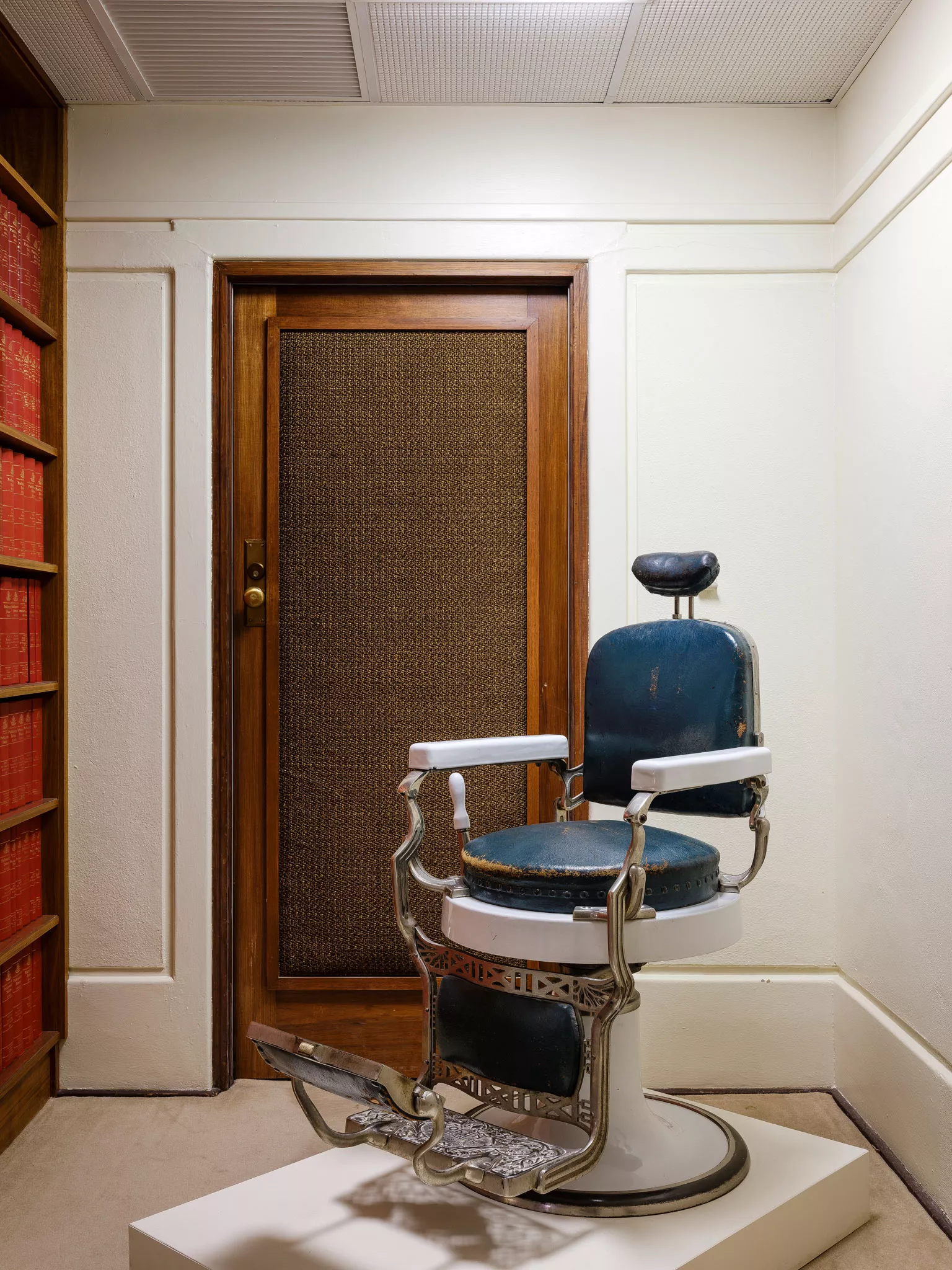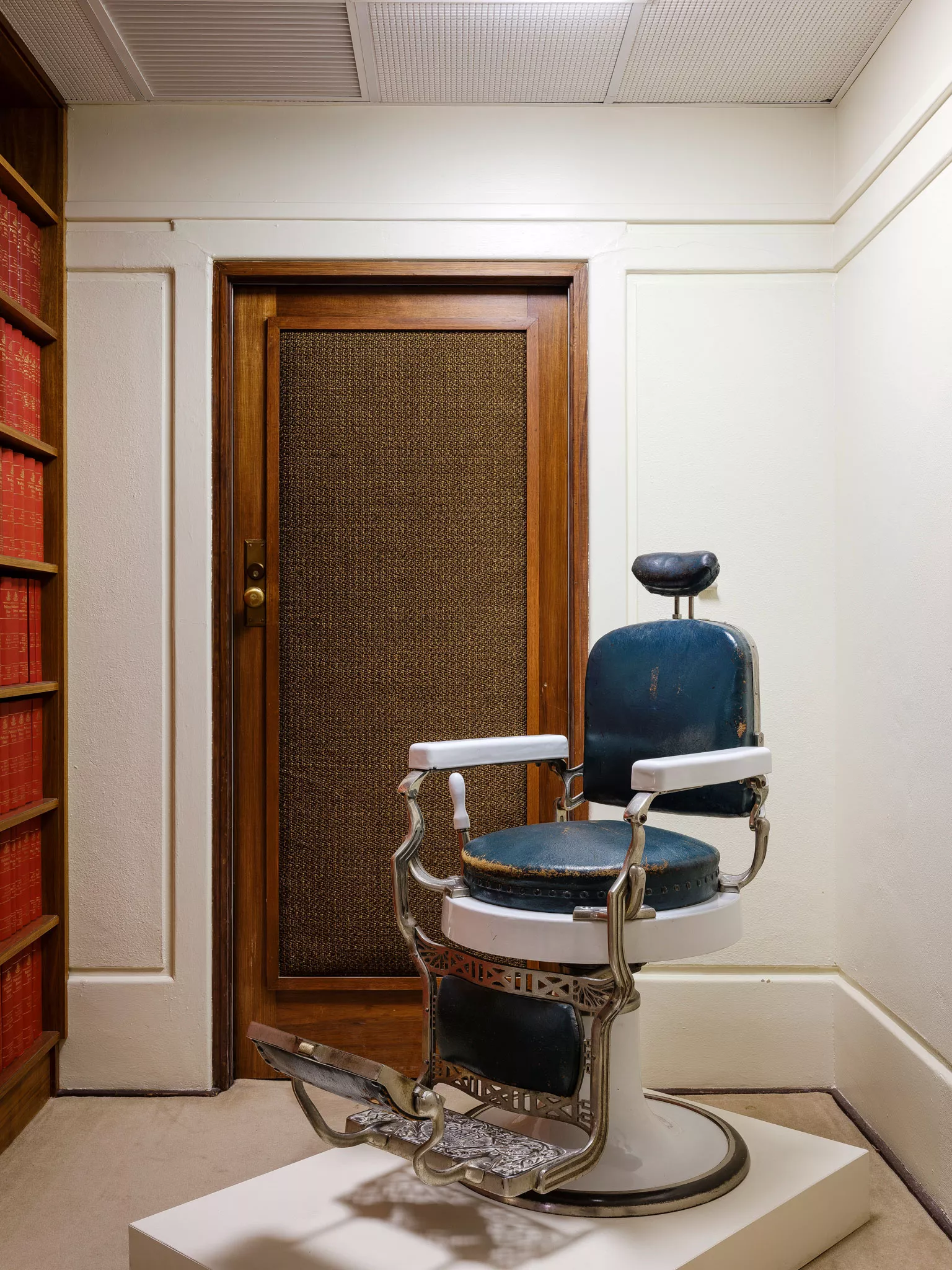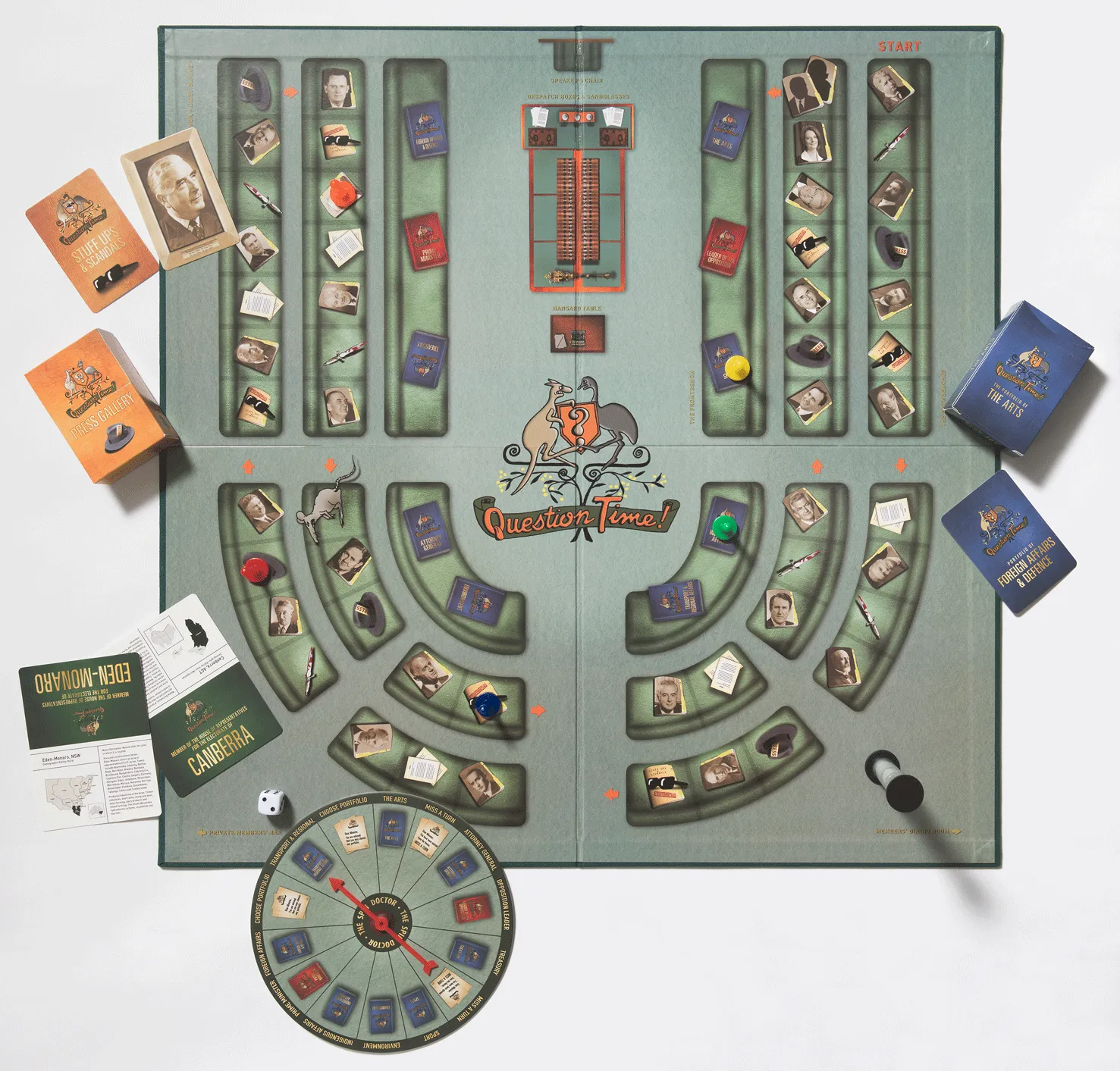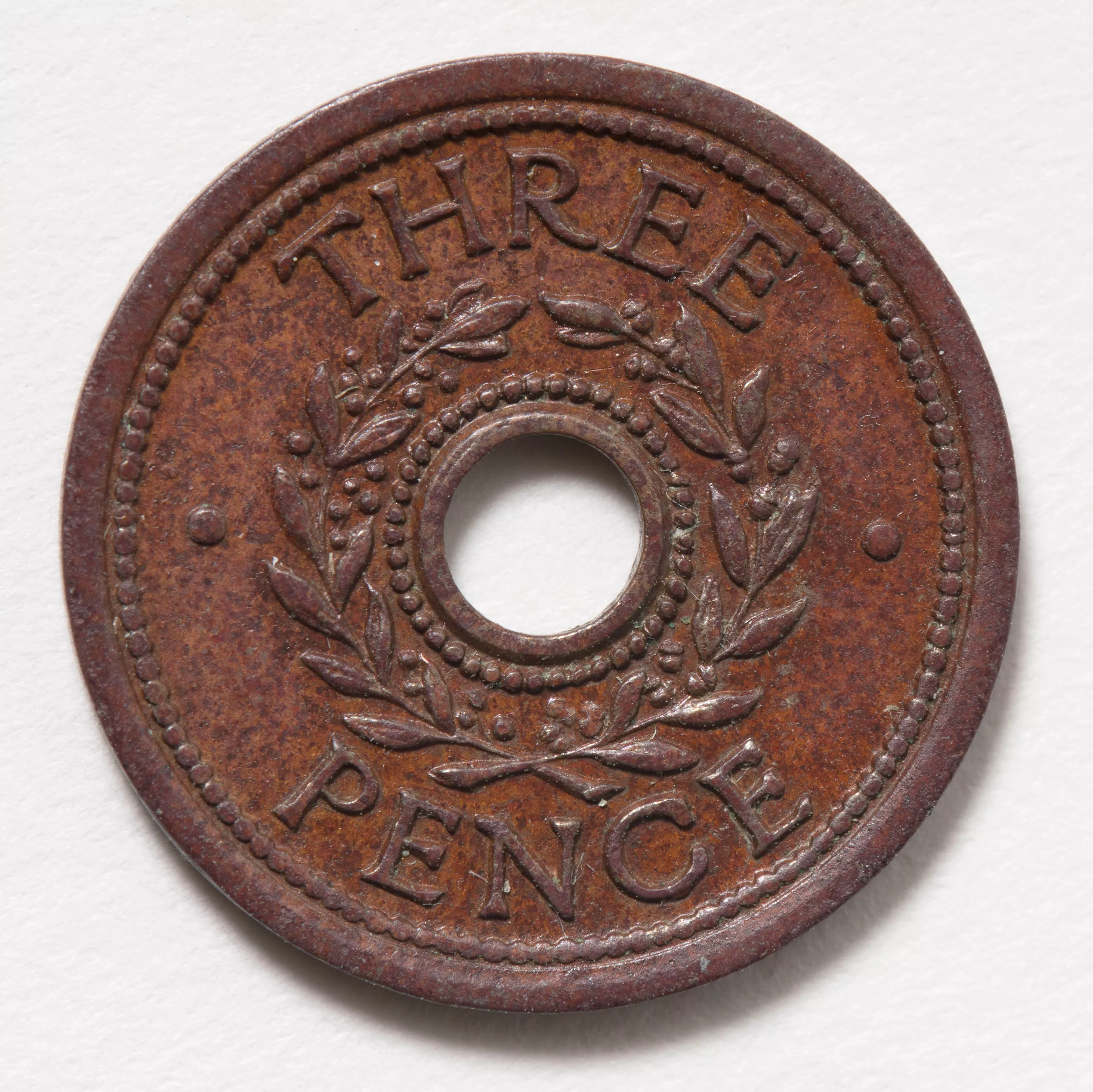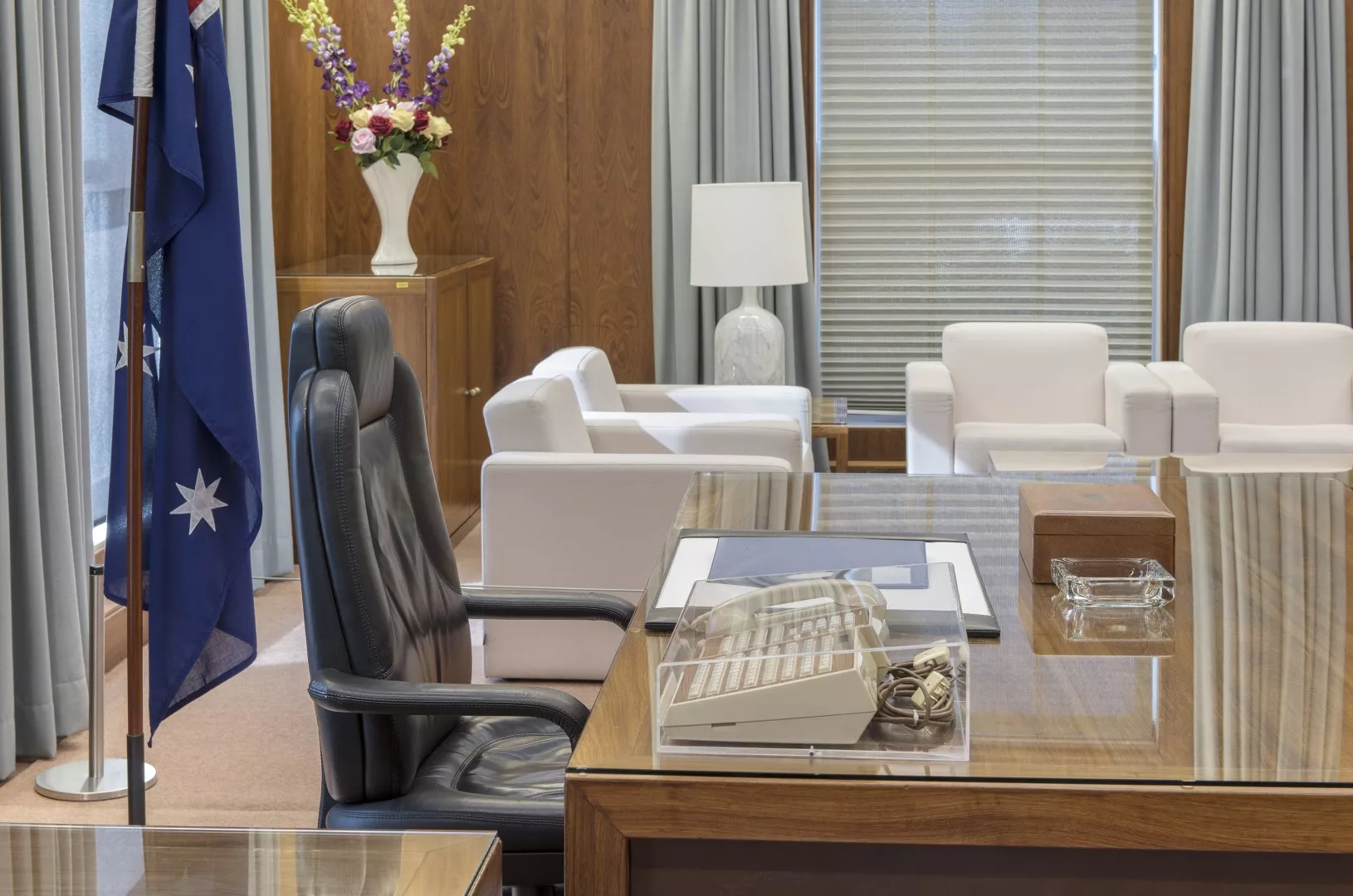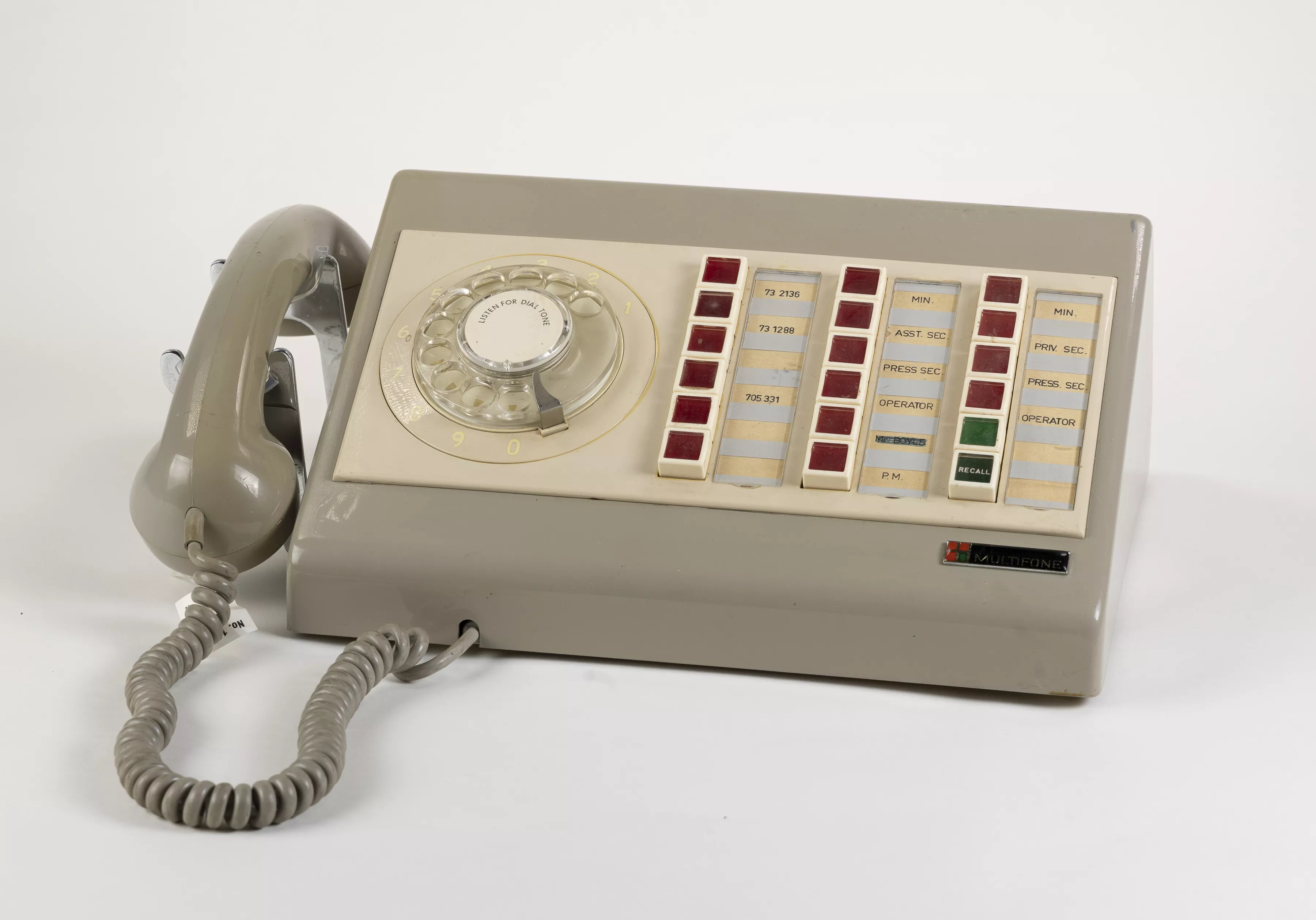Barber's chair
Not a hair out of place.
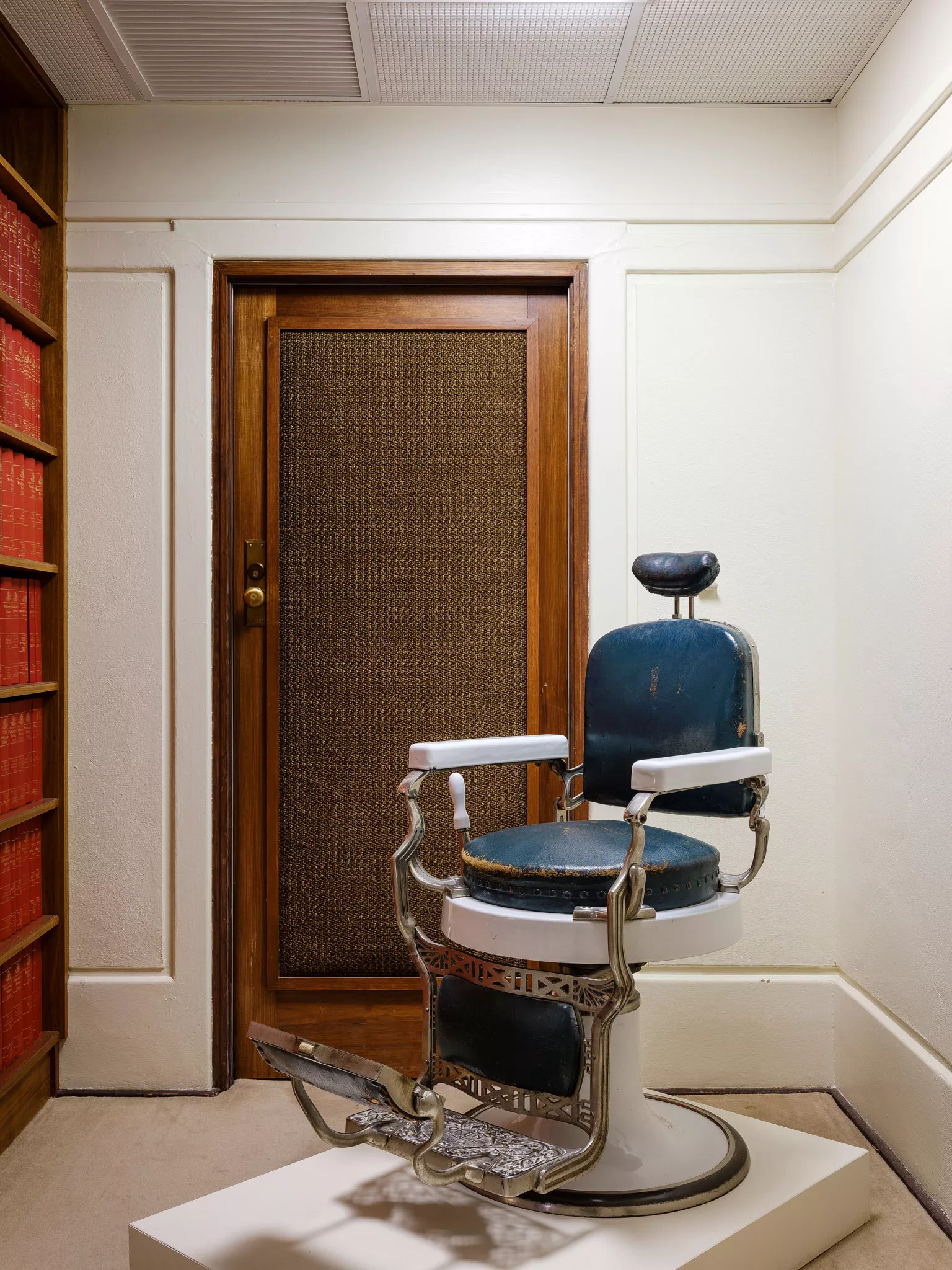
In 1927, Canberra was a fledgling city with few services. When Parliament House opened, it was like a 'town within a building', with its own barber, post office, banking and dining room for the politicians and staff who worked here.
The barber, and later the hairdresser, was an essential service within the building. This was especially true with the advent of television in the 1950s, when it was important for politicians to be camera ready.
This swivelling barber's chair, used in Parliament House from 1960 until it was shifted to Australian Parliament House in 1988, was manufactured by the Koken Barber Supply Company in the United States. Koken's chairs were the first to incorporate a hydraulic lifting mechanism, allowing the barber to lift and lower clients with ease.
Interestingly, the barber's chair was so well-used that there is still evidence of perming solution and hairspray on the dark green leather of the seat, and traces of talcum powder remain in the grooves of the footrest.
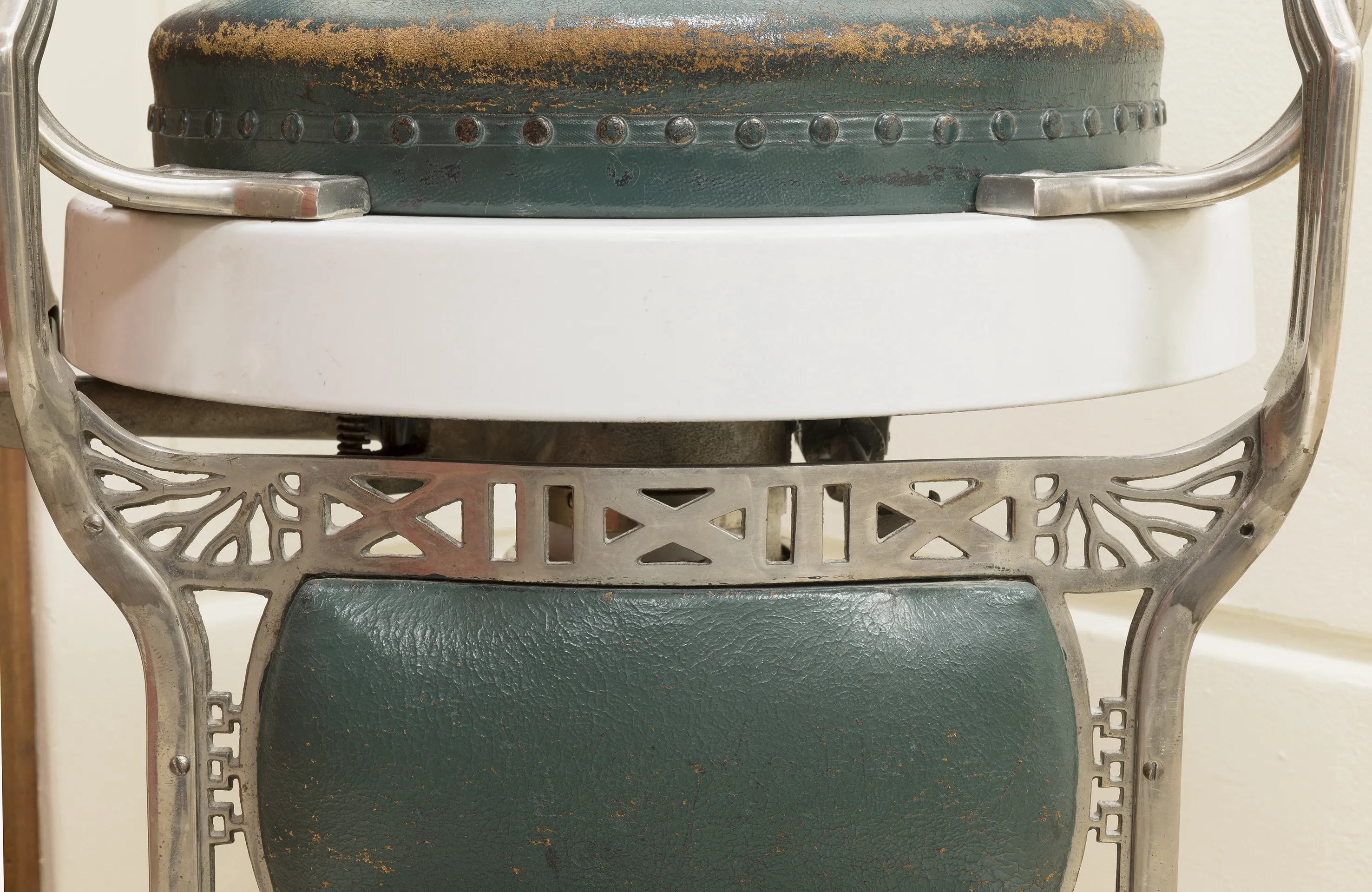
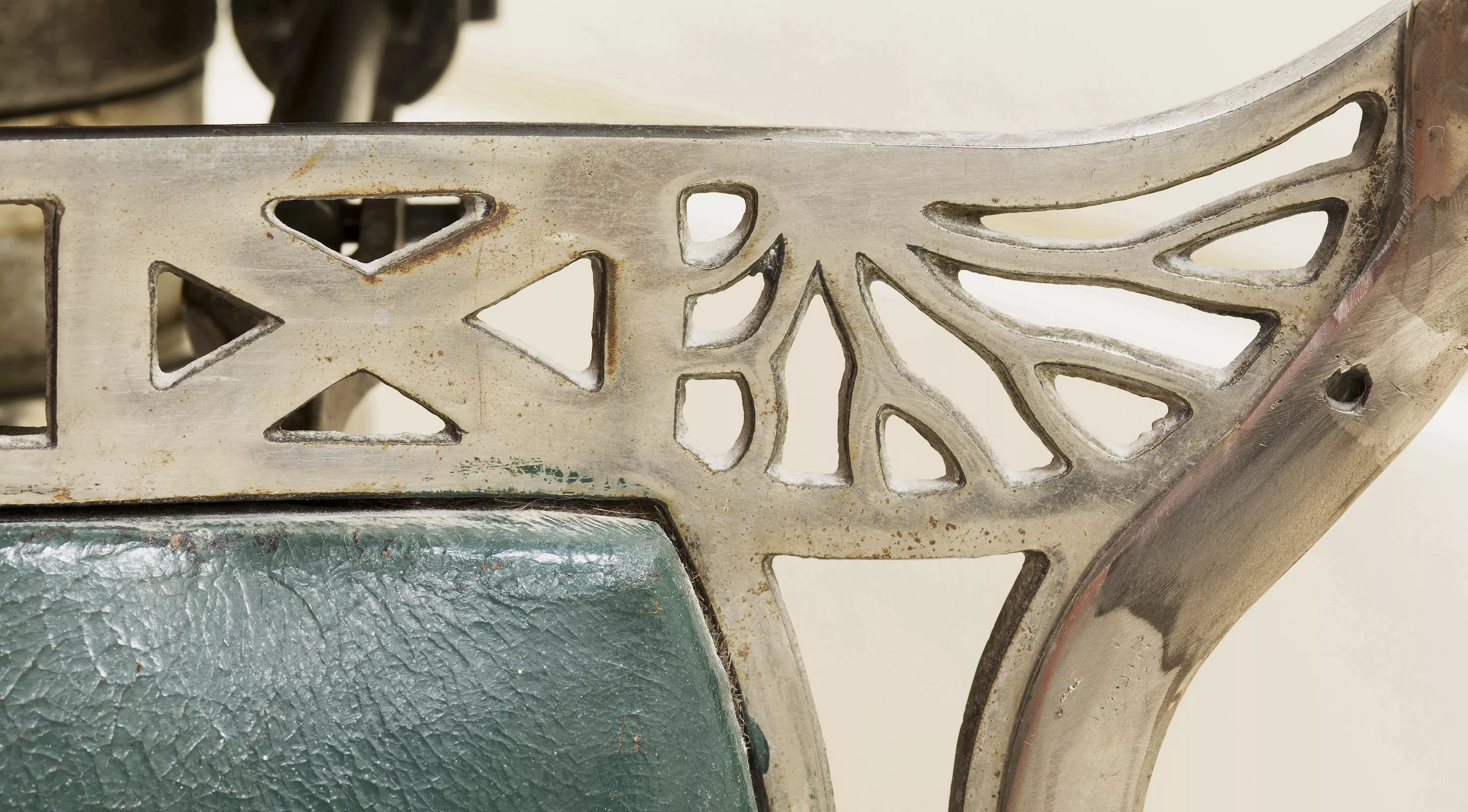
Old Parliament House functioned as a 'town within a building'.
Cecil Bainbrigge was the barber for more than a decade in the 1940s, and managed the Parliamentary Barber Shop. At first the barber shop only catered for men but when more women began working in the building, a hairdresser came on staff.
From 1978, Elizabeth 'Lizzie' Scott worked from a small room in the southwest wing of the building as the onsite hairdresser. She worked in the building until its closure in 1988 and then transferred to Australian Parliament House.
See the barber's chair in our Furnished exhibition.
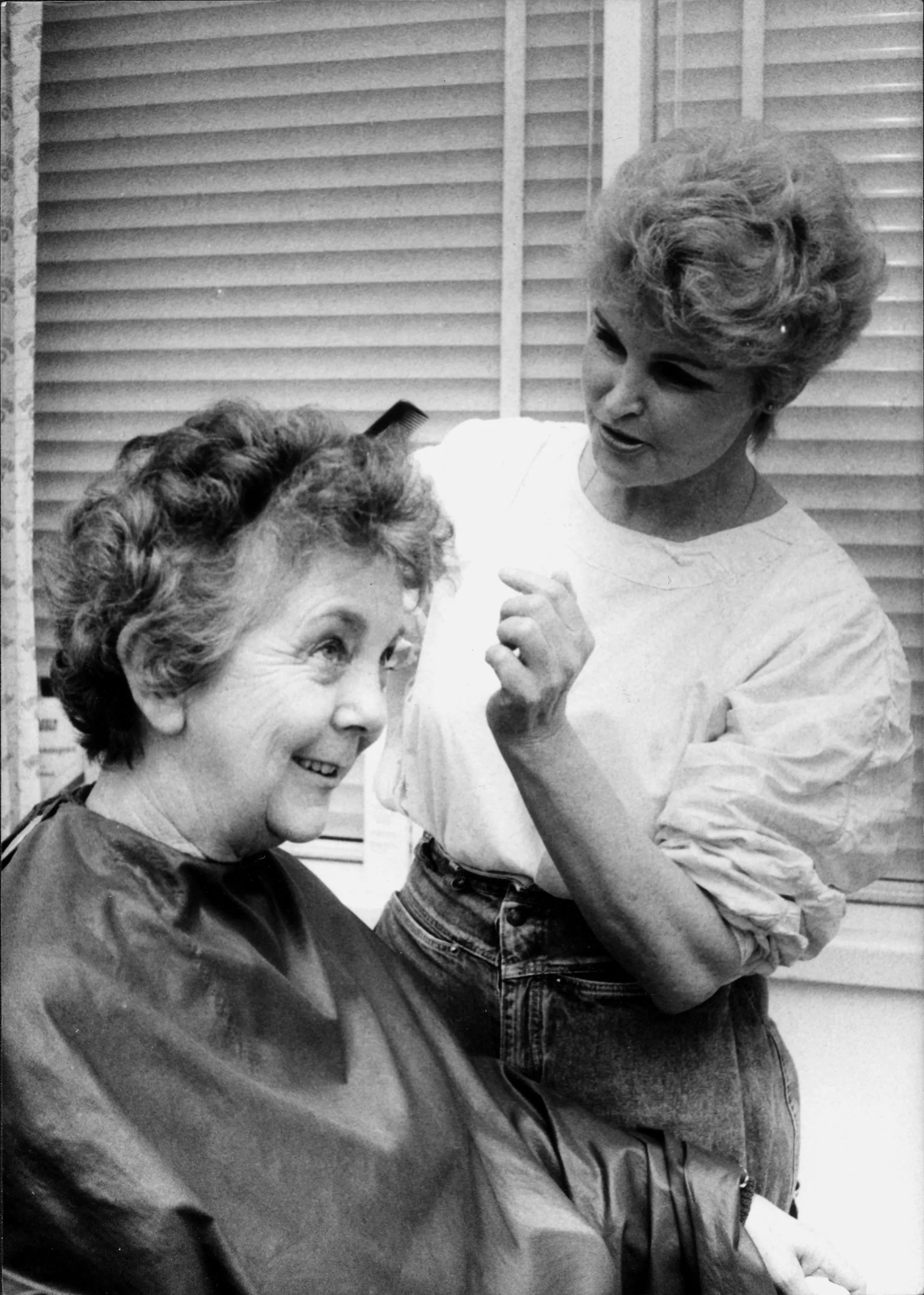
Speaker Joan Child and Lizzie Scott in the salon in Old Parliament House, September 1985. Photograph courtesy of Elizabeth Scott, Museum of Australian Democracy Collection
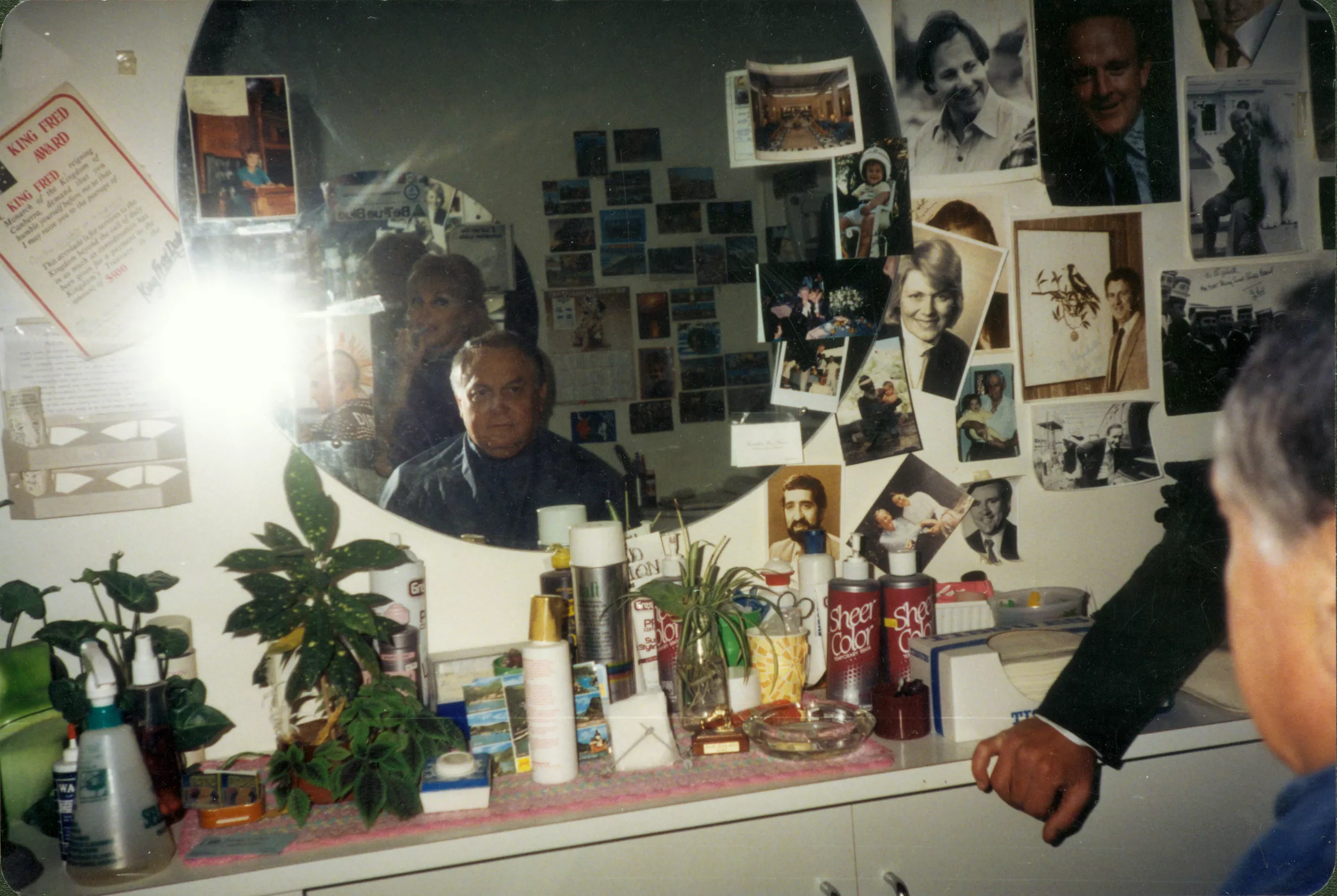
Lizzie Scott and Gary Nehl MP in the hairdressing salon in Old Parliament House, 1988. Photograph courtesy of Elizabeth Scott, Museum of Australian Democracy Collection
Who sat in this barber's chair?
Politicians and staff were clients of the barber and the hairdresser. Lizzie Scott recalls several famous clients, including Flo Bjelke-Petersen, Kathy Martin, Margaret Guilfoyle and John Howard. Scott remembered her clients fondly, particularly Joan Child, the first woman Speaker of the House of Representatives, describing Joan as 'wonderful'. Scott was paid directly for her services and did not take clients from outside the Parliament.

